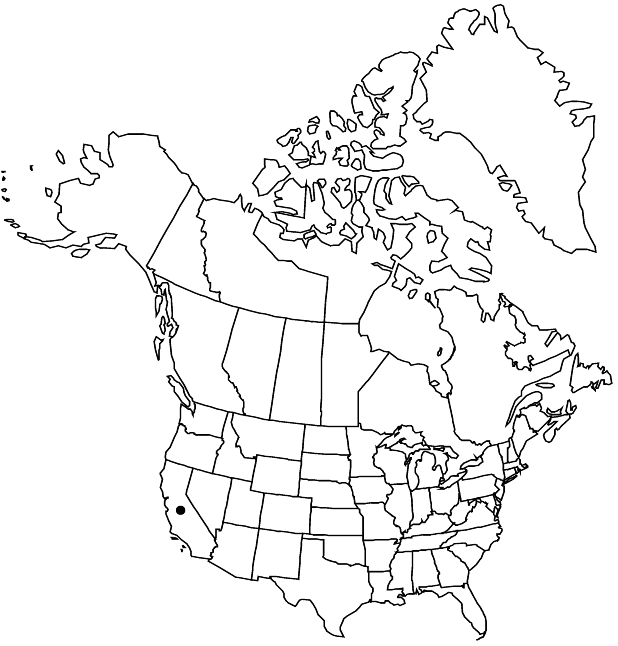Difference between revisions of "Jepsonia heterandra"
Bull. Torrey Bot. Club 32: 201. 1905 ,.
FNA>Volume Importer |
FNA>Volume Importer |
||
| Line 27: | Line 27: | ||
|distribution=Calif. | |distribution=Calif. | ||
|discussion=<p>Of conservation concern.</p><!-- | |discussion=<p>Of conservation concern.</p><!-- | ||
| − | --><p>Jepsonia heterandra is relatively uncommon and is apparently restricted to crevices and alluvium of very specific rock types. It has been suggested (R. Ornduff 1969b) that both the mineral content and texture of the substrate influence the distribution of this species. Heterostyly in the genus was first recognized by Eastwood in her description of this species.</p> | + | --><p><i>Jepsonia heterandra</i> is relatively uncommon and is apparently restricted to crevices and alluvium of very specific rock types. It has been suggested (R. Ornduff 1969b) that both the mineral content and texture of the substrate influence the distribution of this species. Heterostyly in the genus was first recognized by Eastwood in her description of this species.</p> |
|tables= | |tables= | ||
|references={{Treatment/Reference | |references={{Treatment/Reference | ||
| Line 54: | Line 54: | ||
|publication year= | |publication year= | ||
|special status= | |special status= | ||
| − | |source xml=https://jpend@bitbucket.org/aafc-mbb/fna-data-curation.git/src/ | + | |source xml=https://jpend@bitbucket.org/aafc-mbb/fna-data-curation.git/src/8f726806613d60c220dc4493de13607dd3150896/coarse_grained_fna_xml/V8/V8_235.xml |
|genus=Jepsonia | |genus=Jepsonia | ||
|species=Jepsonia heterandra | |species=Jepsonia heterandra | ||
Revision as of 18:05, 18 September 2019
Caudices branched, flat. Leaves 2–3. Inflorescences diffuse, (3–)4–17(–25)-flowered; bracts scalelike; peduncle pink or reddish, drying tan or reddish, branched near middle, 3–23 cm. Flowers: hypanthium campanulate, 1.5–3 mm, length to 1.5 times sepals; sepals pink, 1.3–2 mm, base flattened, glandular-viscid; petals withering, alternate with sepals, distinct, white with deep pink veins, 3.5–6 mm. Pollen bluish or cream. Capsules whitish green or red with red striations, ovoid or ellipsoid, beaks divergent. Seeds light brown. 2n = 14.
Phenology: Flowering Sep–Nov.
Habitat: Crevices, slate outcrops, rocky slopes
Elevation: 50-600 m
Discussion
Of conservation concern.
Jepsonia heterandra is relatively uncommon and is apparently restricted to crevices and alluvium of very specific rock types. It has been suggested (R. Ornduff 1969b) that both the mineral content and texture of the substrate influence the distribution of this species. Heterostyly in the genus was first recognized by Eastwood in her description of this species.
